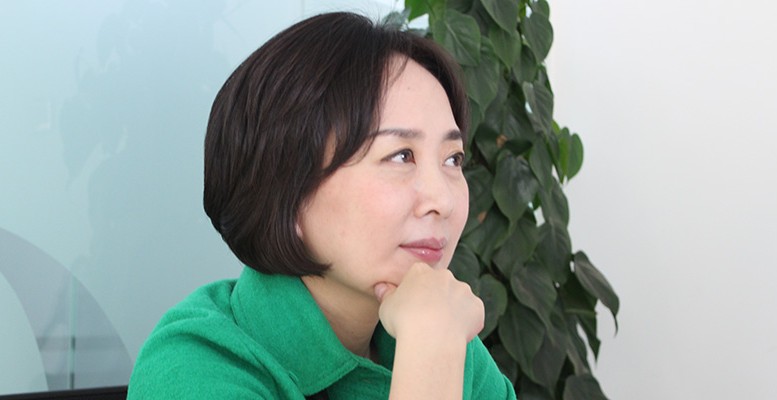BEIJING| Alberto Lebrón |There have been two events in November which have been key to measuring the trend in global consumption: China’s “Singles’ Day” on 11/11 and the Black Friday-Cyber Monday weekend in the rest of the world.
Diane Wang is an e-business pioneer and one of the 10 most powerful women in the Asia Pacific, according to Forbes. She has created the largest b2b platform in China, with 10 million corporate clients, and now wants to open this up to Spanish companies.
Question: How important is e-business in China?
Answer: In 2013, China beat the U.S. to become the leading world market for e-commerce. And this, as you can imagine, has its consequences. China currently has 6o million registered SMEs. Out of all of these, at least 10 million have incorporated e-commerce into their business. In addition, there is a constant stream of business innovation and a large number of entrepreneurs. And every dollar spent on e-commerce increases total consumption by 40% in the main cities in China and by 60% in smaller towns. So e-commerce is a main driver for change in the business model and consumption in China.
Q: And what about non-Chinese companies? Do you think that Spanish companies could benefit from cooperation with e-business firms here in China?
A: Yes. I have personally asked these questions in different forums such as the APEC or the G-20. I can tell you that there is a global consensus with regards to promoting the internationalisation of small and mid-sized companies worldwide via the development of the e-commerce industry. In these meetings, all we have done is to agree to facilitate cross-border commercial exchanges via internet. This summer I was invited to give the opening speech at the world e-business summit in Barcelona. There we highlighted three questions which for me are fundamental.
Firstly, how can we boost the globalisation of companies, both big and small? Then, secondly, we talk about the “omni” channel, which consists in boosting all e-business channels, from mobile phones to social networks. That would end up being a case of going from e-commerce to everywhere commerce. Then in the third place, we are talking about how we can facilitate cross-border business.
Q: She spoke about Spain…
A: Small businesses in Spain are looking for ways to increase sales of top quality products like Serrano ham or high fashion textiles. Spain has very competitive products which can conquer global markets like China. DHgate and other platforms can provide a lot of help for all those Spanish companies which want to sell their products across the world. But we also want to satisfy Spanish companies’ global supply needs by also selling products from other countries on our platform. Trade is a two-way business and we can also offer good products from China. Telephones or electric bikes are goods which can be sold in Spain. E-commerce platforms are just international supermarkets, where small and mid-sized businesses can freely exchange their products on a global level.
Q: Will these global supermarkets some day become a daily reality?
A: That’s the way it’s going, although there are still some trade barriers and more experience is needed. We have been working for ten years on issues which still need to be improved, like the communication between vendor and consumer who, normally, don’t speak the same language. There are also logistic questions which need to be answered, such as the problems which might eventually arise when it is time to pay. That said, the security of the financial transaction and the product is guaranteed. Internet banking is developing in a secure way, I think. And I insist that we would like nothing more than to continue to collaborate with Spanish businessmen to sell their products outside Spain. As well as, logically, supply them inside Spain with useful products.





